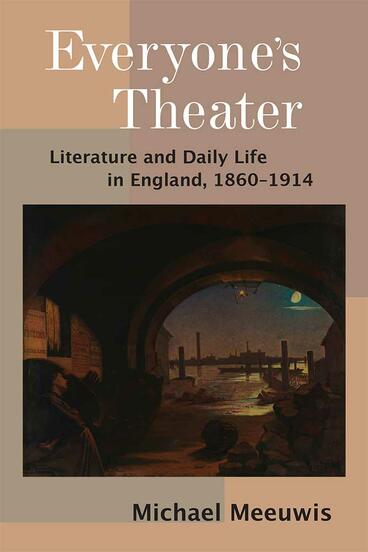Everyone’s Theater
Literature and Daily Life in England, 1860–1914
Connects the practices of the professional Victorian stage to the world of the amateur theatricals across England and its empire
Description
Nearly all residents of England and its colonies between 1860 and 1914 were active theatergoers, and many participated in the amateur theatricals that defined late Victorian life. The Victorian theater was not an abstract figuration of the world as a stage, but a media system enmeshed in mass lived experience that fulfilled in actuality the concept of a theatergoing nation. Everyone’s Theater turns to local history, the words of everyday Victorians found in their diaries and production records, to recover this lost chapter of theater history in which amateur drama domesticates the stage. Professional actors and playwrights struggled to make their productions compatible with ideas and techniques that could be safely reproduced in the home—and in amateur performances from Canada to India. This became the first true English national theater: a society whose myriad classes found common ground in theatrical display. Everyone’s Theater provides new ways to extend Victorian literature into the dimension of voice, sound, and embodiment, and to appreciate the pleasures of Victorian theatricality.
Michael Meeuwis is Associate Professor in the Department of English and Comparative Literary Studies, University of Warwick.
Reviews
“Meeuwis sets a fresh direction for future scholarship. In making such a strong case for the significant social role played by the theater in the 19th century, Everyone’s Theater promises to be the study that moves the theater more centrally into conversations about the interplay between culture and the constructions of individual, class, and national identities.”
—Marty Gould, University of South Florida
“Argues that Victorian theatrical culture—redefined to include not only professional performances in commercial theaters but also how-to manuals for amateur theatricals and examples of how they were implemented, the diaries of everyday theater-goers, shipboard performances, and performances recorded in the East India Office Archive—provides a vehicle for understanding the great scope of theater’s influence in cultivating behavioral norms for the public. This is original and exciting work, and the archival work is top-notch . . . an important contribution to Victorian studies, theater studies, and cultural studies.”
—Sharon Weltman, Louisiana State University
News, Reviews, Interviews
Read: Review in The Year's Work in Critical and Cultural Theory | 6/14/2021

